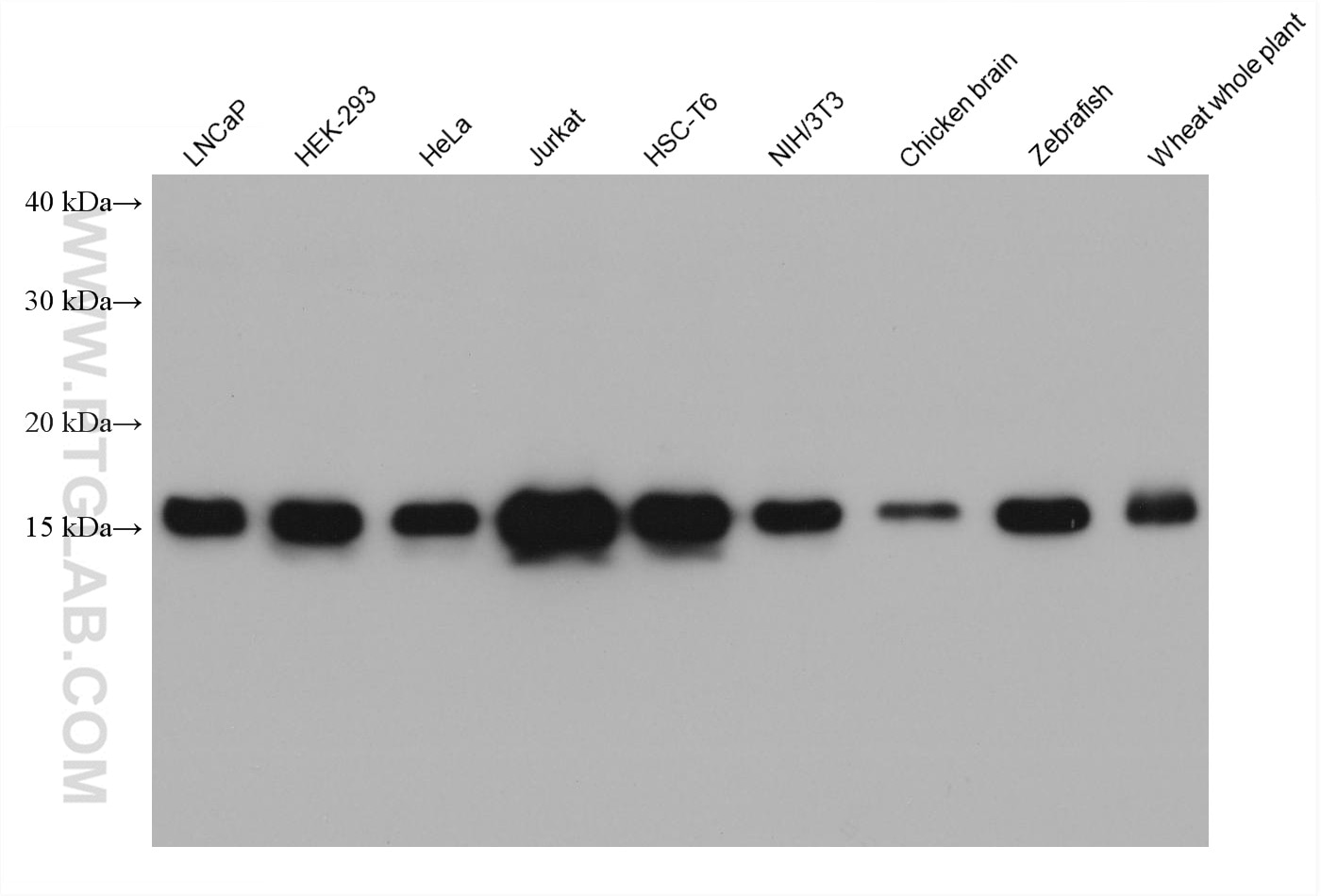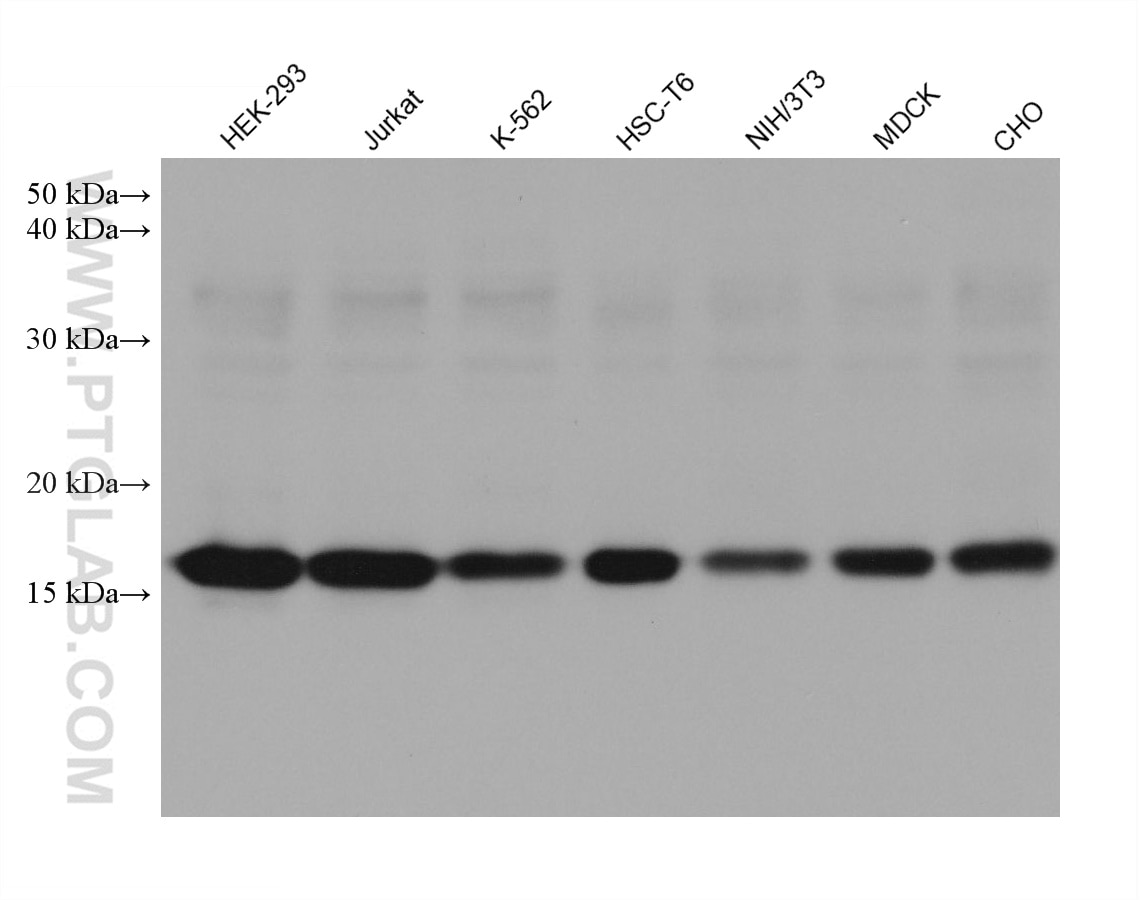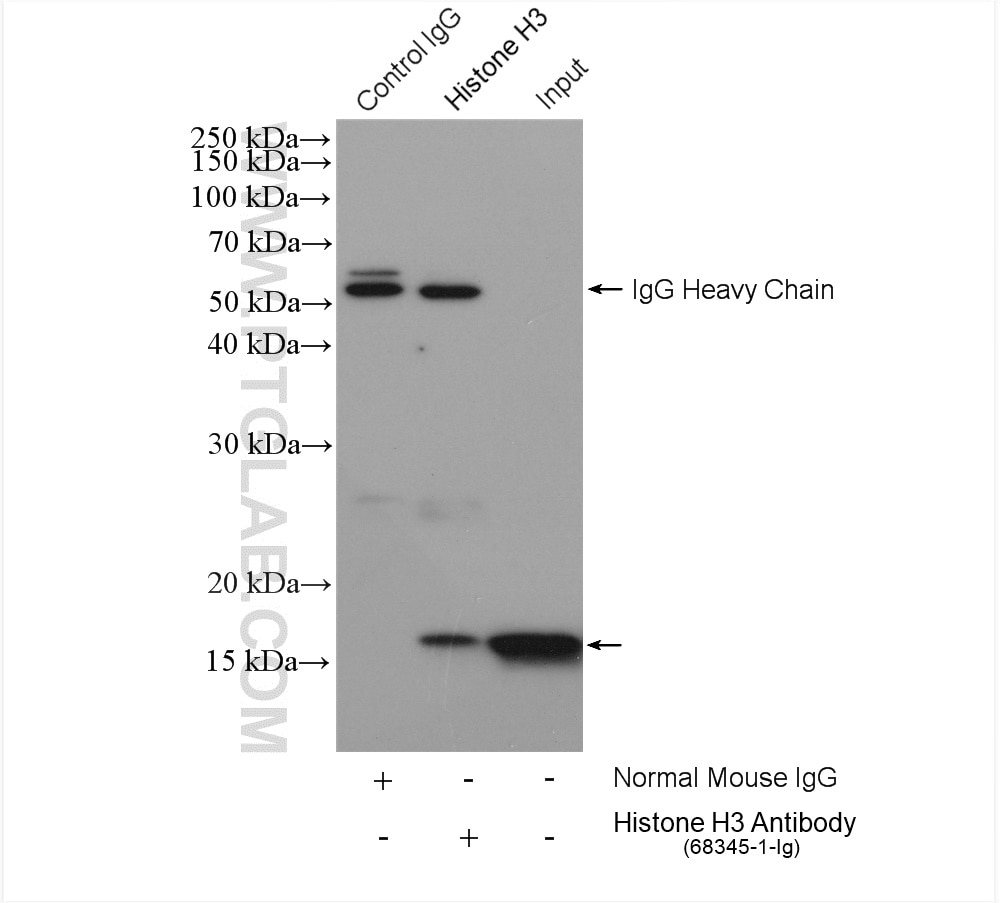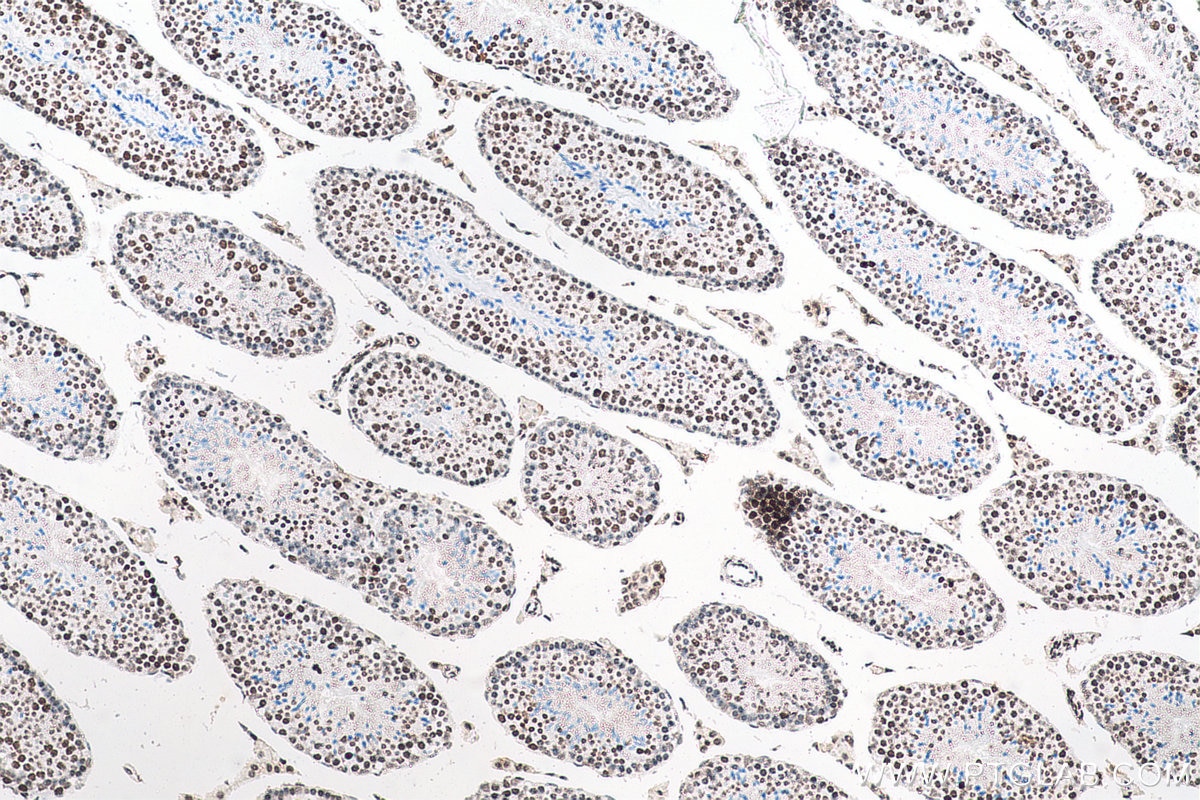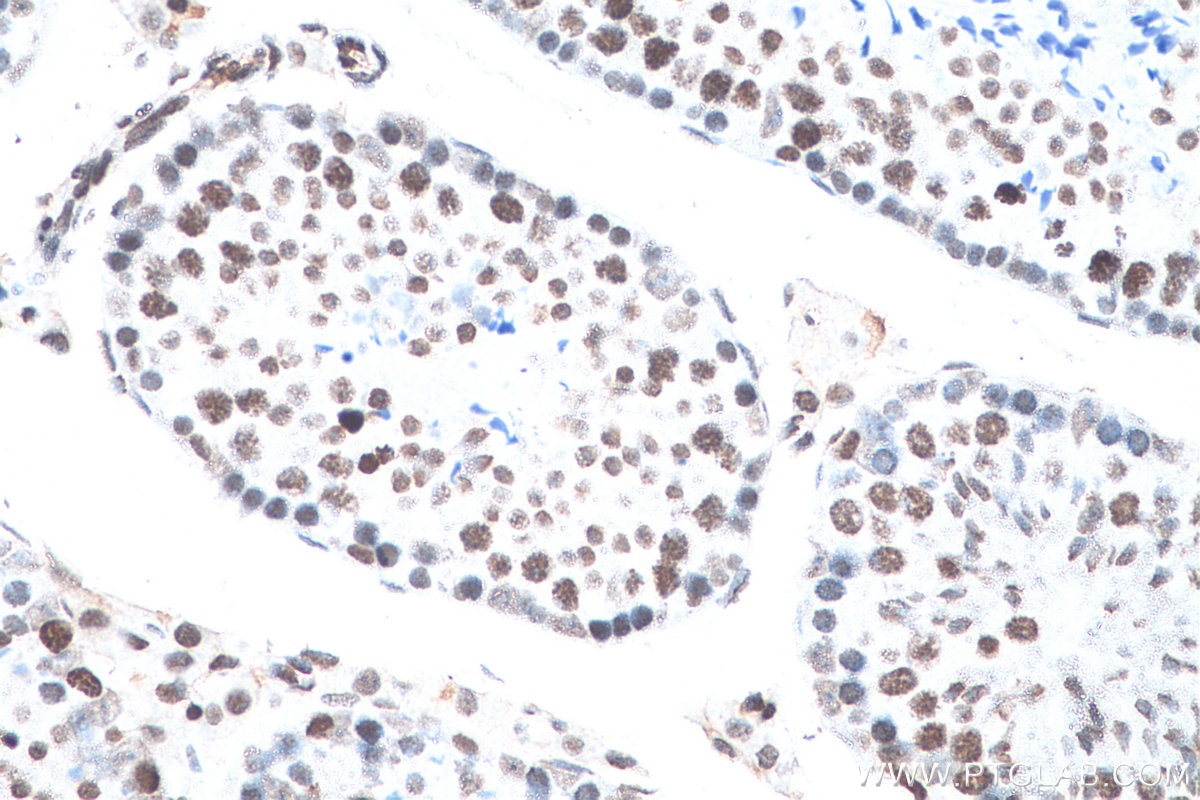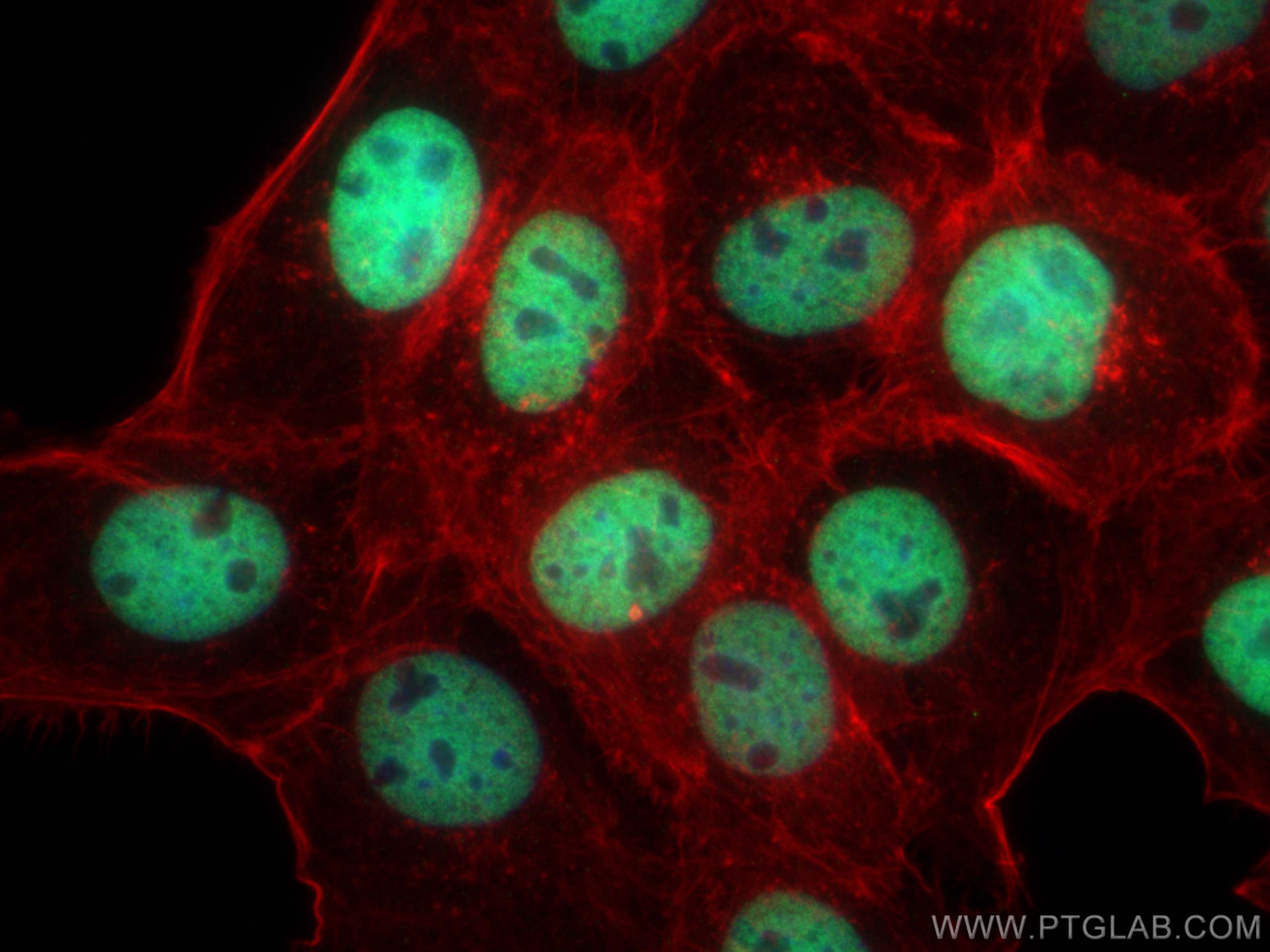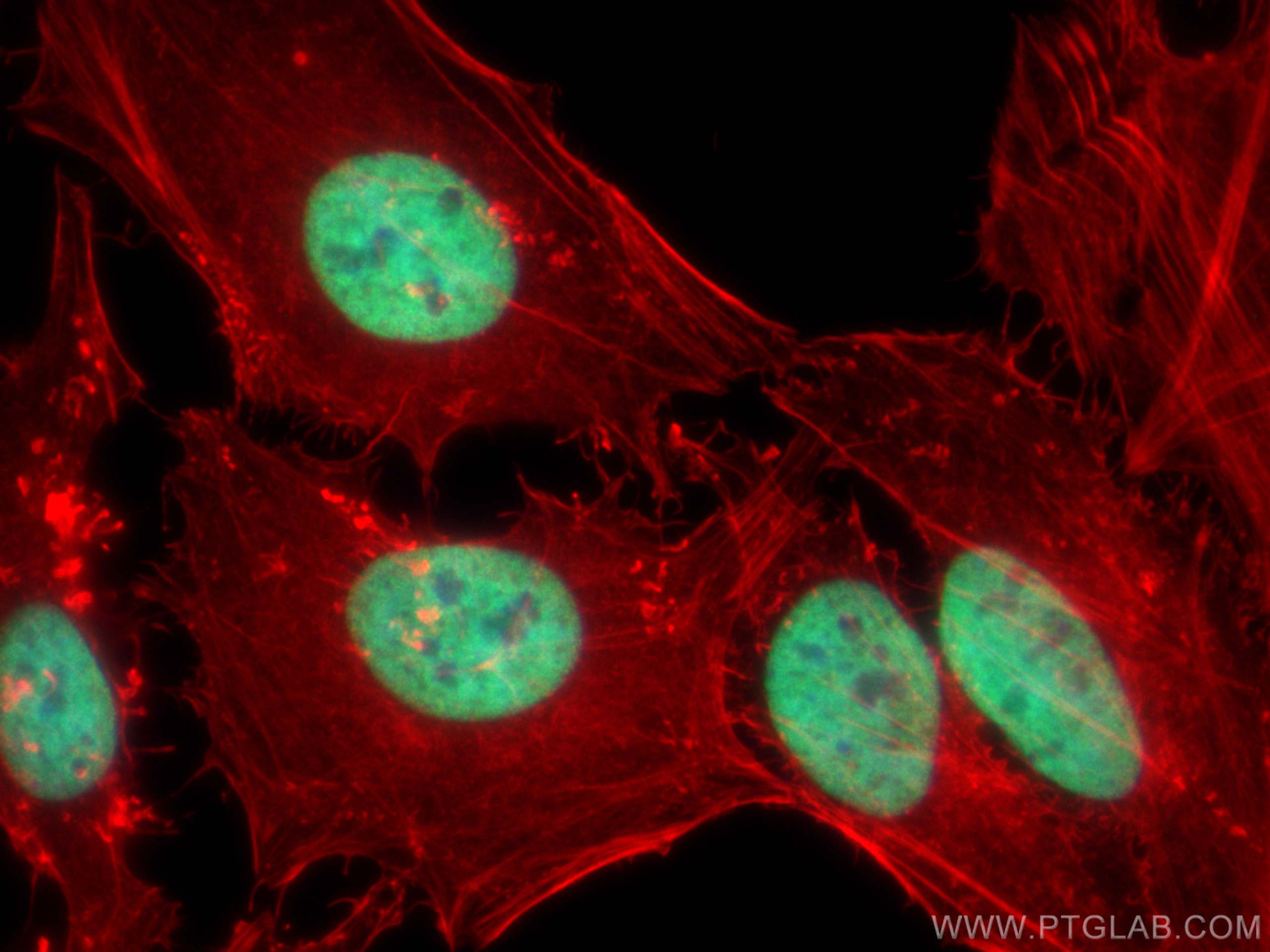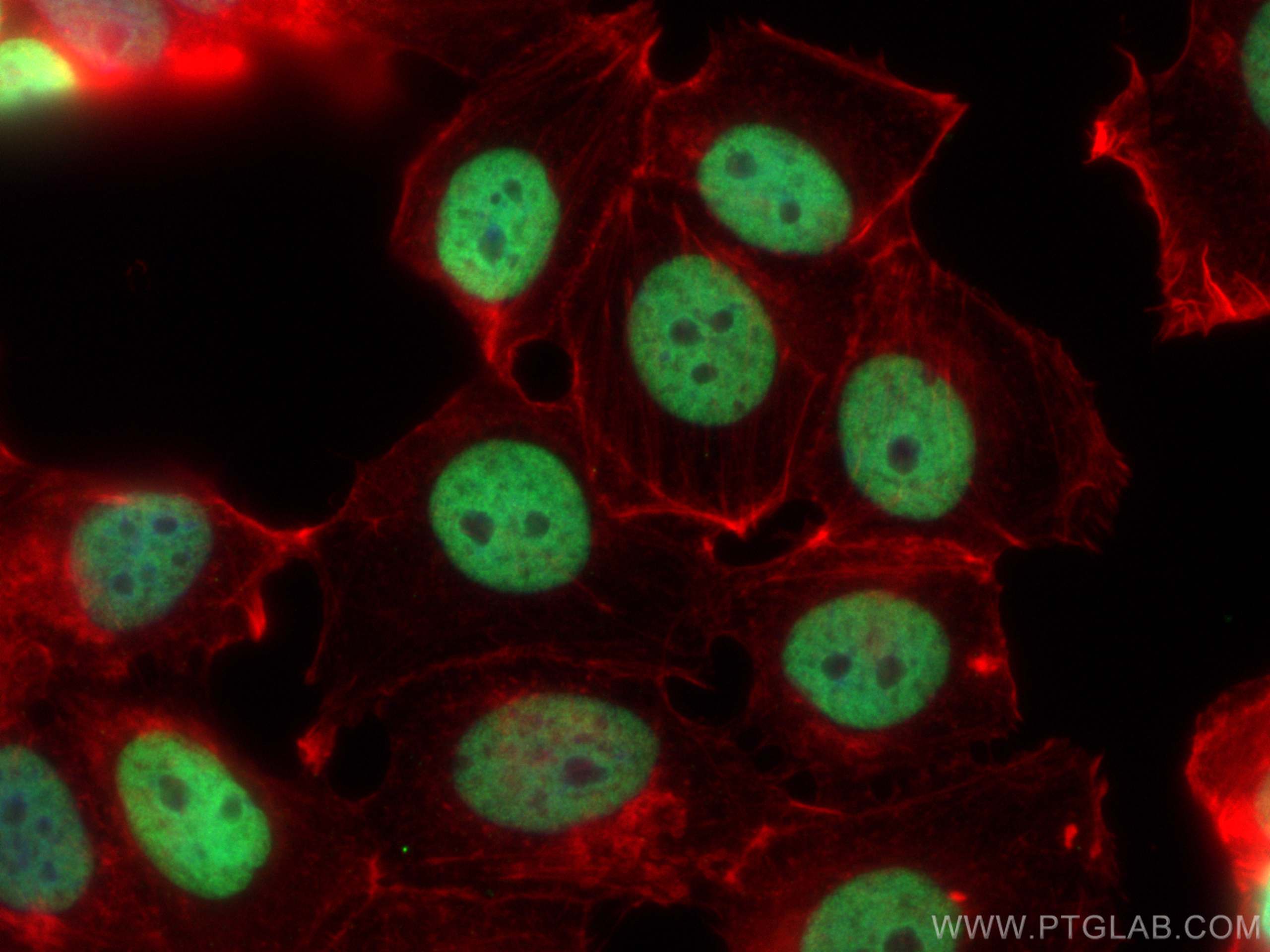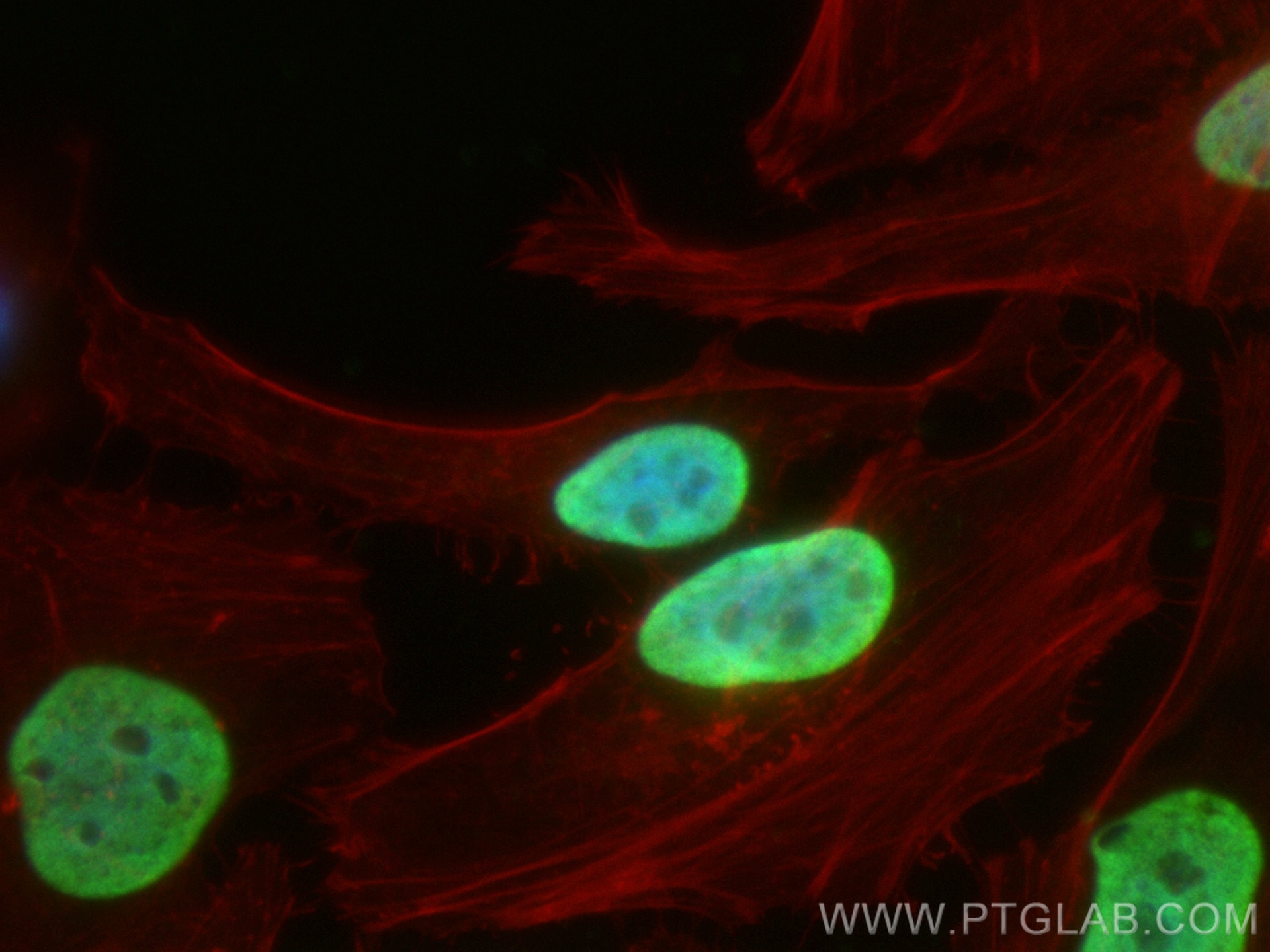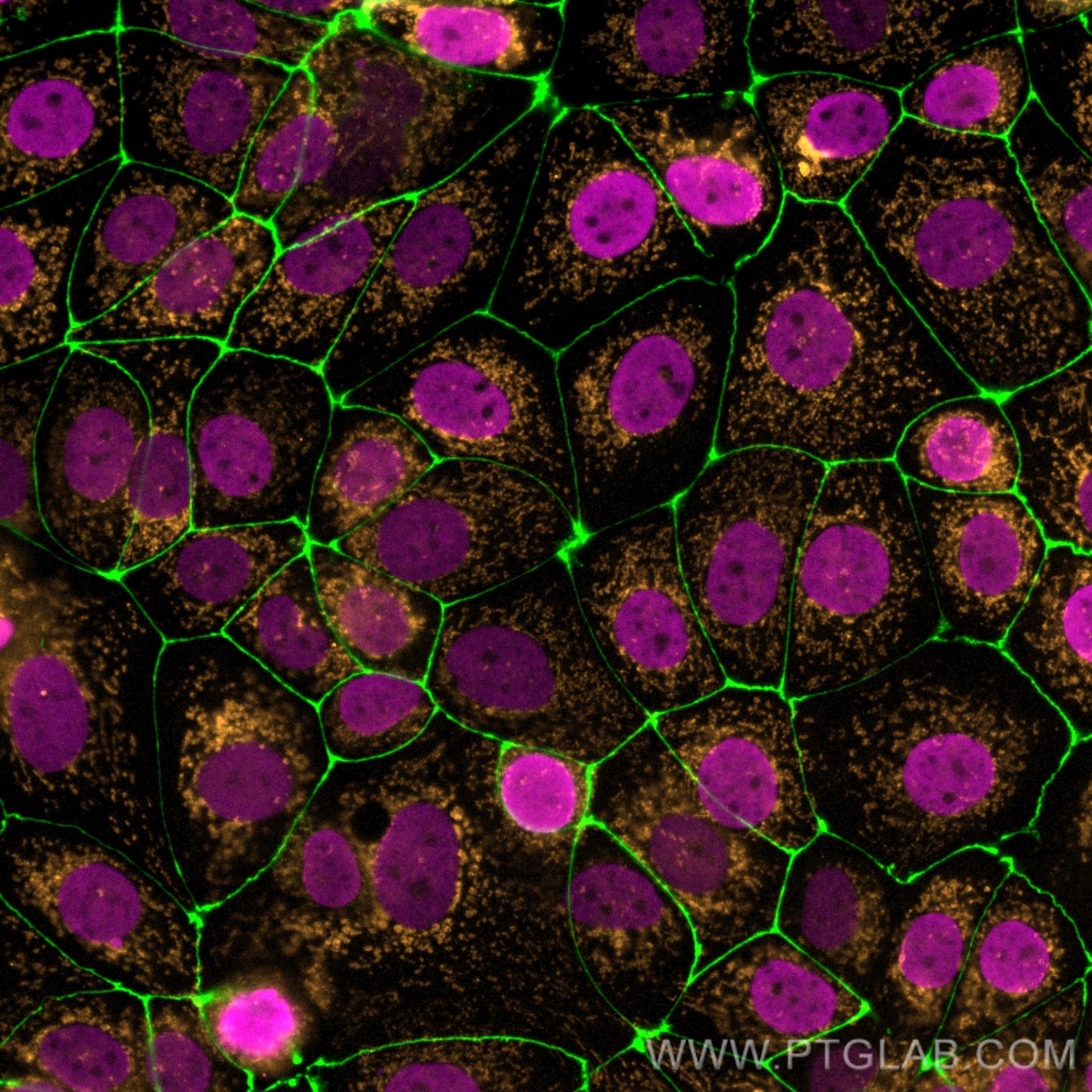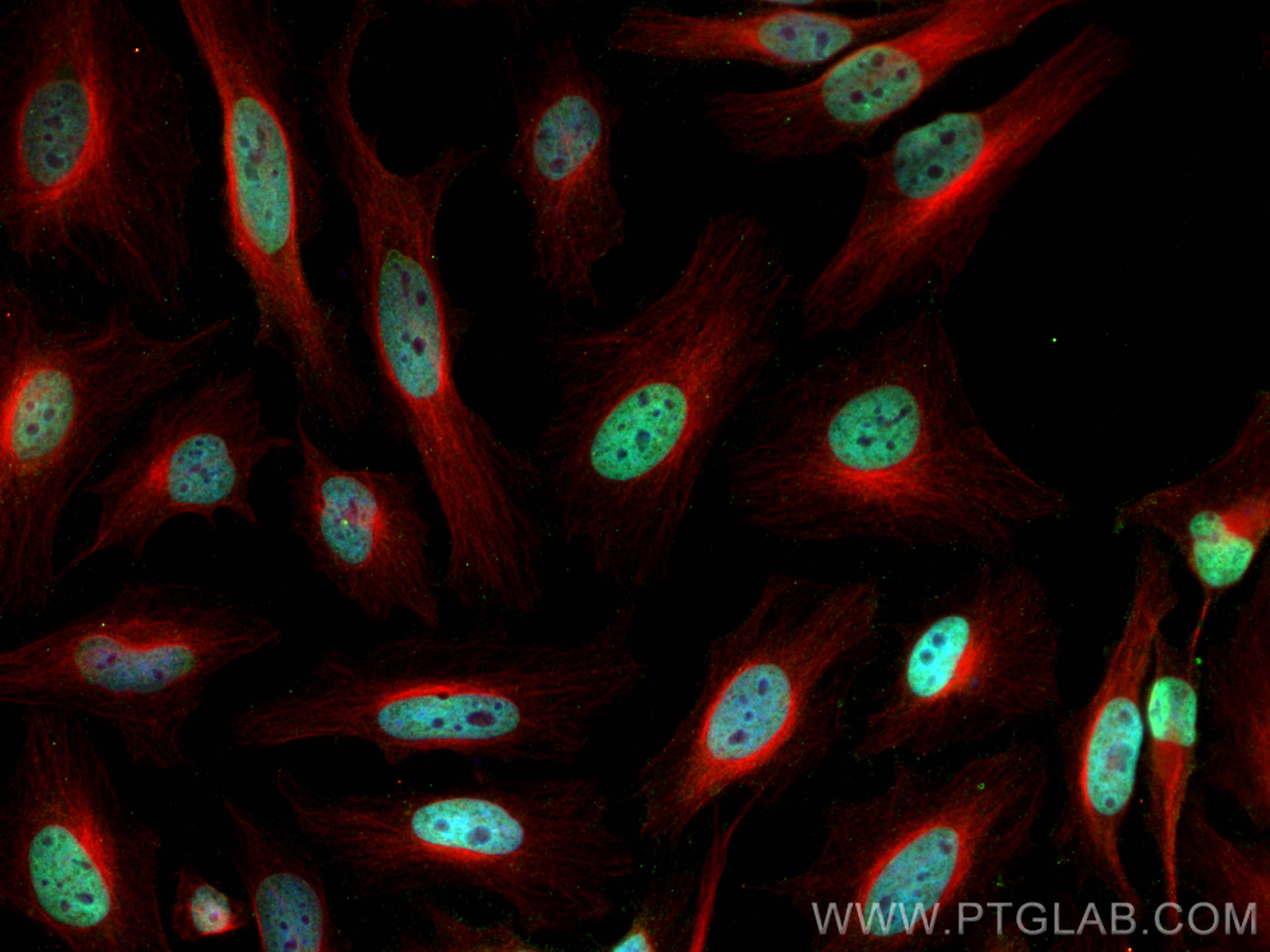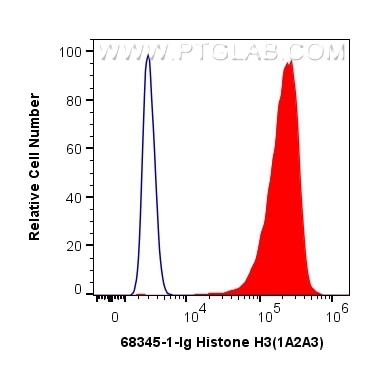Anticorps Monoclonal anti-Histone H3
Histone H3 Monoclonal Antibody for WB, IHC, IF/ICC, FC (Intra), IP, ELISA
Hôte / Isotype
Mouse / IgG2b
Réactivité testée
canin, chien, Humain, Lapin, poisson-zèbre, porc, poulet, rat, souris, Hamster, wheat
Applications
WB, IHC, IF/ICC, FC (Intra), IP, ELISA
Conjugaison
Non conjugué
CloneNo.
1A2A3
N° de cat : 68345-1-Ig
Synonymes
Galerie de données de validation
Applications testées
| Résultats positifs en WB | cellules LNCaP, cellules CHO, cellules HEK-293, cellules HeLa, cellules HSC-T6, cellules Jurkat, cellules K-562, cellules MDCK, cellules NIH/3T3, tissu cérébral de poulet, poisson-zèbre |
| Résultats positifs en IP | cellules HeLa, |
| Résultats positifs en IHC | tissu testiculaire de souris, tissu de cancer du côlon humain il est suggéré de démasquer l'antigène avec un tampon de TE buffer pH 9.0; (*) À défaut, 'le démasquage de l'antigène peut être 'effectué avec un tampon citrate pH 6,0. |
| Résultats positifs en IF/ICC | cellules MCF-7, cellules A431, cellules HeLa |
| Résultats positifs en FC (Intra) | cellules HepG2, |
Dilution recommandée
| Application | Dilution |
|---|---|
| Western Blot (WB) | WB : 1:5000-1:50000 |
| Immunoprécipitation (IP) | IP : 0.5-4.0 ug for 1.0-3.0 mg of total protein lysate |
| Immunohistochimie (IHC) | IHC : 1:500-1:2000 |
| Immunofluorescence (IF)/ICC | IF/ICC : 1:500-1:2000 |
| Flow Cytometry (FC) (INTRA) | FC (INTRA) : 0.40 ug per 10^6 cells in a 100 µl suspension |
| It is recommended that this reagent should be titrated in each testing system to obtain optimal results. | |
| Sample-dependent, check data in validation data gallery | |
Applications publiées
| WB | See 58 publications below |
| IF | See 3 publications below |
Informations sur le produit
68345-1-Ig cible Histone H3 dans les applications de WB, IHC, IF/ICC, FC (Intra), IP, ELISA et montre une réactivité avec des échantillons canin, chien, Humain, Lapin, poisson-zèbre, porc, poulet, rat, souris, Hamster, wheat
| Réactivité | canin, chien, Humain, Lapin, poisson-zèbre, porc, poulet, rat, souris, Hamster, wheat |
| Réactivité citée | rat, Humain, souris |
| Hôte / Isotype | Mouse / IgG2b |
| Clonalité | Monoclonal |
| Type | Anticorps |
| Immunogène | Peptide |
| Nom complet | histone cluster 1, H3a |
| Poids moléculaire observé | 15-17 kDa |
| Numéro d’acquisition GenBank | BC066245 |
| Symbole du gène | HIST1H3A |
| Identification du gène (NCBI) | 8350 |
| Conjugaison | Non conjugué |
| Forme | Liquide |
| Méthode de purification | Purification par protéine A |
| Tampon de stockage | PBS with 0.02% sodium azide and 50% glycerol |
| Conditions de stockage | Stocker à -20°C. Stable pendant un an après l'expédition. L'aliquotage n'est pas nécessaire pour le stockage à -20oC Les 20ul contiennent 0,1% de BSA. |
Informations générales
Histones are small, highly basic proteins that consist of a globular domain with unstructured N- and C-terminal tails protruding from the main structure. Histone H3 is one of the five main histones that are responsible for the nucleosome structure of the chromosomal fiber in eukaryotes. Two molecules of each of the four core histones (H2A, H2B, H3, and H4) form an octamer, around which approximately 146 bp of DNA is wrapped in repeating units, called nucleosomes. In addition to their role in DNA compartmentalization, histones also play crucial roles in various biologic processes, including gene expression and regulation, DNA repair, chromatin condensation, cell cycle progression, chromosome segregation, and apoptosis. The ability of histones to regulate chromatin dynamics primarily originates from various posttranslational modifications carried out by histone-modifying enzymes.
Protocole
| Product Specific Protocols | |
|---|---|
| WB protocol for Histone H3 antibody 68345-1-Ig | Download protocol |
| IHC protocol for Histone H3 antibody 68345-1-Ig | Download protocol |
| IF protocol for Histone H3 antibody 68345-1-Ig | Download protocol |
| IP protocol for Histone H3 antibody 68345-1-Ig | Download protocol |
| Standard Protocols | |
|---|---|
| Click here to view our Standard Protocols |
Publications
| Species | Application | Title |
|---|---|---|
Mol Cancer Exosomal circ_0006896 promotes AML progression via interaction with HDAC1 and restriction of antitumor immunity | ||
Nucleic Acids Res The origin recognition complex requires chromatin tethering by a hypervariable intrinsically disordered region that is functionally conserved from sponge to man | ||
Redox Biol Deficiency of S100 calcium binding protein A9 attenuates vascular dysfunction in aged mice | ||
Environ Pollut Chronic exposure to polystyrene microplastics induced LHR reduction and decreased testosterone levels through NF-κB pathway | ||
Biochim Biophys Acta Mol Basis Dis ARL11 knockdown alleviates spinal cord injury by inhibiting neuroinflammation and M1 activation of microglia in mice | ||
Ecotoxicol Environ Saf Role of the USP7/FOXO3A axis in environmentally relevant doses of arsenic-induced lung carcinogenesis: Insights from bioinformatics analysis and model of human epithelial cell malignant transformation |
